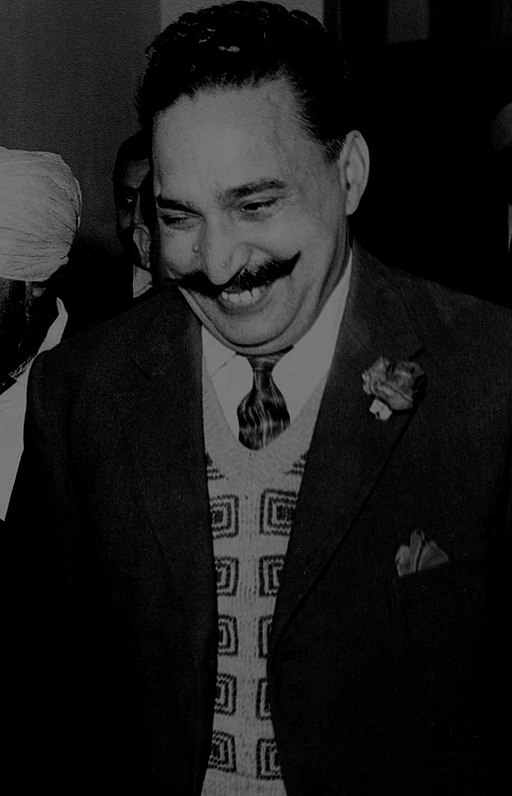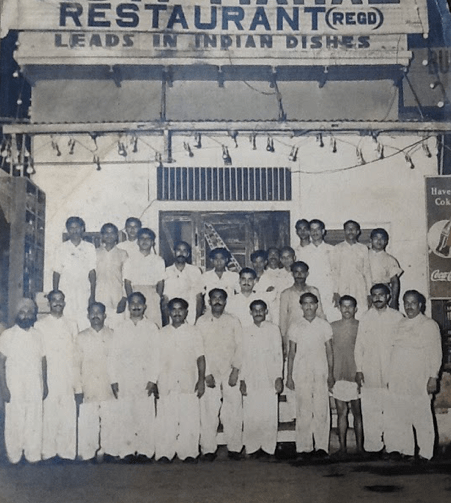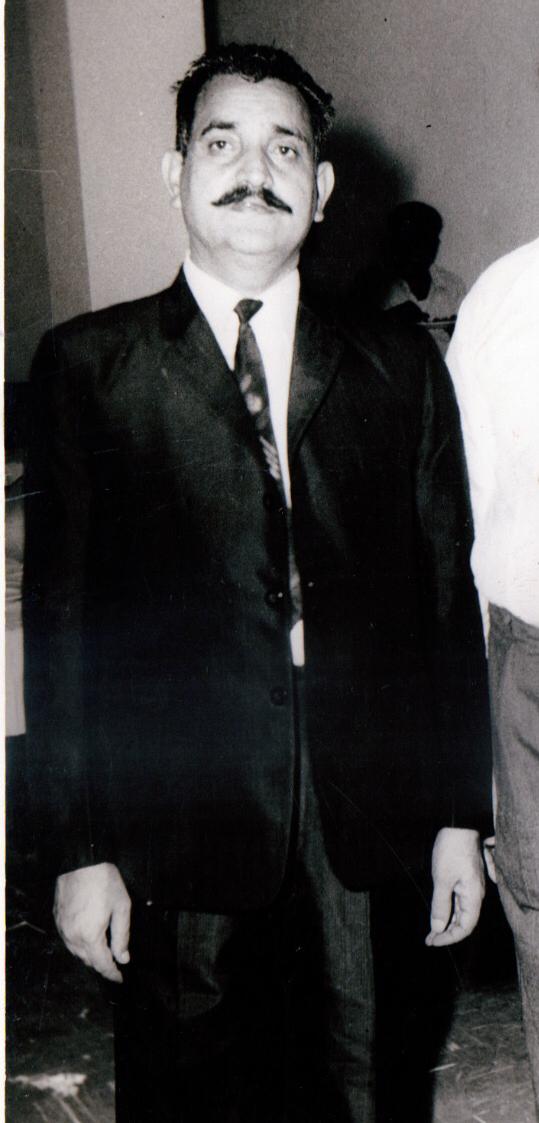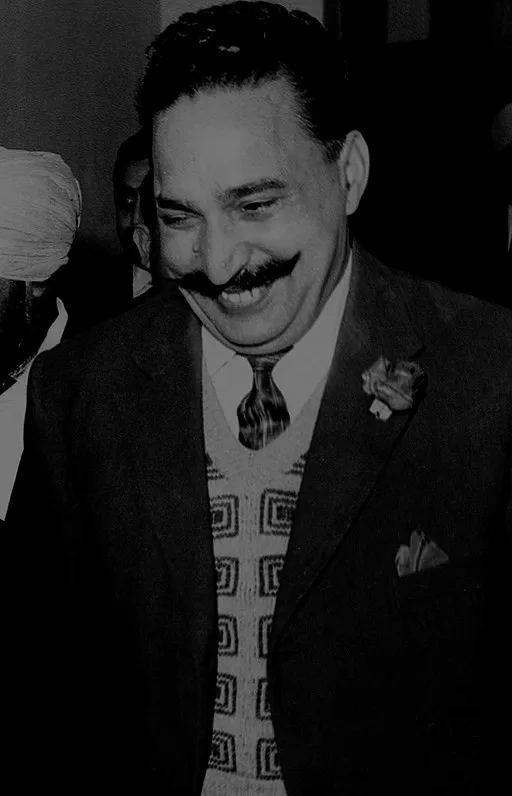Now, the decadent dish is at the centre of a bitter legal spat between two restaurants in the Indian capital, New Delhi.
Owners of the eateries are now in court, debating the history of this curry which dates back to before the subcontinent was partitioned into India and Pakistan. Both restaurants claim to be the original home of the beloved victual.
The (contested) history of butter chicken
Kundan Lal Gujral first learned how to cook in a sweets and sherbet shop in Peshawar, which is now in Pakistan.

In 1947, amid the chaotic split of the subcontinent into India and Pakistan, Gujral moved to Delhi, where he opened the first Moti Mahal restaurant.

The eatery was frequented by quite a notable cohort, with guests including India’s first prime minister, Jawaharlal Nehru; first education minister Maulana Azad as well as former United States President Richard Nixon and former First Lady Jacqueline Kennedy.
Gujral later appointed his cousin, Kundan Lal Jaggi, as a partner – a decision that, decades later, would lead to the butter chicken brawl. Jaggi’s heirs opened their own restaurant, Daryaganj, in Delhi in 2019 to celebrate Jaggi’s culinary legacy.

Moti Mahal vs Daryaganj – the battle of the Kundan Lals
There is now bitterness between the two restaurants and the furious feud between the two families has materialised into a 2,752-page lawsuit filed by Moti Mahal, accusing its rival eatery, Daryaganj, of falsely taking credit for inventing butter chicken. The case had its first hearing on January 16.
Moti Mahal has also accused Daryaganj of claiming credit for conceptualising the creamy, slow-cooked black lentil dish, dal makhani.
Daryaganj used “By the inventors of butter chicken and dal makhani” as its slogan, which was trademarked in 2018, local media reported.
But the current owner of Moti Mahal, Manish Gujral, claims he has submitted documentary evidence that his grandfather, Kundan Lal Gujral, was the true inventor of the dishes.
According to Gujral, his grandfather first created butter chicken by adding a rich tomato-based gravy to leftover chicken to keep the pieces moist.
Jaggi’s grandson, Raghav Jaggi, tells a similar story, except his version features the other Kundan Lal. Raghav Jaggi narrates that his grandfather only had a few pieces of tandoori chicken left and he quickly whipped up a gravy in order to produce a more hearty meal.
The Daryaganj family additionally argues that the late Jaggi had partnered with Gujral to open Moti Mahal in 1947, where the dish was invented. Daryaganj argues that this gives it the right to lay claim to the creation of the dish.
Moti Mahal is seeking 20 million rupees ($240,000) in damages for copyright infringement and unfair competition.
Additionally, the restaurant wants the court to bar Daryaganj from claiming that butter chicken and daal makhani were invented by its forebears.
Tulasi Srinivas, an anthropology professor at Emerson College in Boston, who writes about South Asian food cultures and gastronomy, speculated Moti Mahal’s move to be a result of food production becoming “a very entrepreneurial space”.
She spoke about the value of originality in a space where tremendous profits can be made with quick-service restaurants. “If you want to lay claim that you’re the original creator of something, it translates into real money.
“Not all sparkling wines are champagne, right?”
Srinivas inherited her interest in food from her mother, a famous cookbook author and academic.
Srinivas grew up in Delhi and visited Moti Mahal occasionally when her parents took guests there. Srinivas described Moti Mahal to be a “middle-class luxury restaurant, famous for its smokey tandoori flavours”.
Srinivas added that it is common for feuds over food to occur when it comes to inherited knowledge within the same families. “It is frequently true in restaurant families, there are shared recipes so each arm of the family claims ownership”.
Food – delectable and divisive
This is not the first dispute over who invented a dish within South Asia or beyond.
Delhi High Court heard a food fight in 2018 when two kebab shops were vying for the brand name, “Tunday Kababi”. The states of Odisha and West Bengal both lay claim to the iconic rasgulla, which is a confection made with curdled milk and dipped in sugar syrup.
In 2020, China laid claim to kimchi, a fermented cabbage dish that has long been a staple of Korean cuisine, leading to a social media row among users from China and South Korea.
Senegal, Ghana and Nigeria all lay claim to jollof rice, a West African staple consisting of long rice cooked with tomatoes, onions and spices.
What will happen next?
The owners of Daryaganj are studying the petition before filing their reply. The next court hearing is on May 29. In India, court proceedings can take months, even years to resolve. Until then, the case will marinate.
Srinivas said that the results of the court proceedings are unpredictable and depend on the lawyers employed and the nature of evidence produced. While Moti Mahal has claimed they have documentary evidence, it is unclear how strong the proof is.
However, she looks ahead and postulates: “As Indian restaurants go global, we will see more litigation around family recipes.” Questions of who owns a recipe or method of food production will become more pervasive.
Srinivas said that this becomes an even greater issue with the rise of social media influencers, who reveal family recipes in brief videos on platforms such as TikTok. “If content is disseminated so quickly and so broadly on that platform, it can become diluted,” she said, adding that looking ahead, companies will lay legal claim to solidify ownership over a victual.
